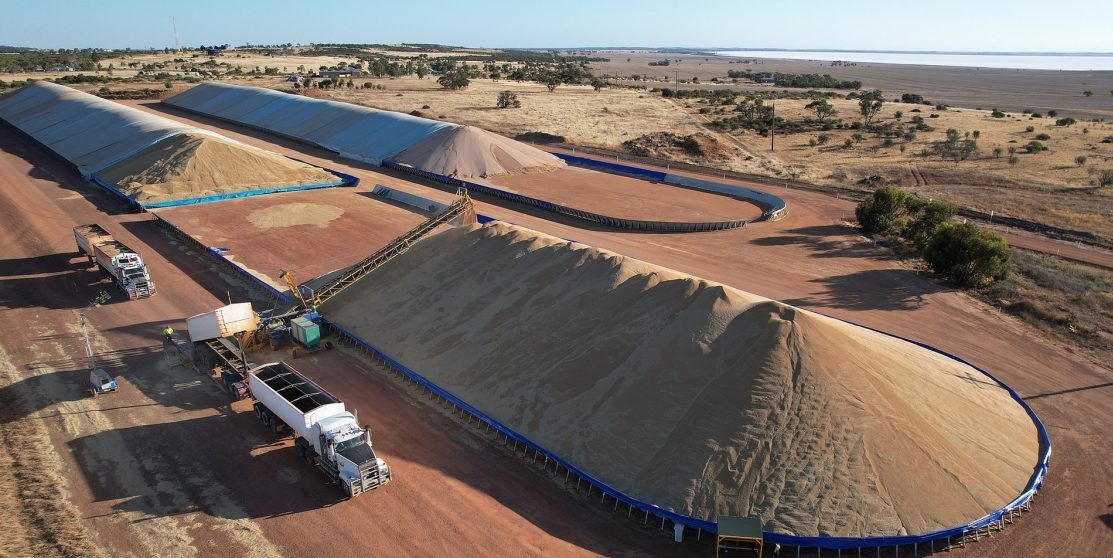
With harvest mostly completed, the WA grains industry is now focused on getting grain to receival sites. This photo show deliveries to CBH Group’s Carnamah site. Photo: Paul Hogger
WESTERN Australian grain growers are in the final throes of harvesting another record grain crop and the predicted back-to-back record production is now a reality.
The latest Grain Industry of Western Australia Grain’s (GIWA) January Crop Report released today reveals the state’s production total is now over 26.14 million tonnes (Mt).
This figure is about 2Mt more than the 2021-22 WA record.
However, whilst most growers are winding up getting the grain off, there is still a long way to go to move what is on-farm into the bin, particularly in the south of the state.
Delivery delays at some zones
Issues with moisture, sprouting, storage space and trucking capacity have resulted in around 20pc of harvested grain in the Esperance and Albany port zones remaining on-farm and still needing to be emptied out of harvest bags or temporary storage for drying, cleaning and delivery to grain receival sites.
This will take time, and the final tonnage will not be known until well into February.
Growers reap seasonal rewards
The increase in total tonnes produced in WA in 2022, compared with 2021, has been fuelled by a repeat of good growing conditions, a large area of crop planted and a mild finish over the whole of the grain growing regions, without the frost and waterlogging that impacted several regions last season.
For many growers, 2022 was as profitable as 2021, even accounting for the higher input costs.
This profit will help fuel further investment in machinery, technology, infrastructure and long-term soil health improvements that were already occurring.
Whilst yield will still be determined to a large extent by rainfall and climatic events, this investment will help in contributing to these sorts of production levels in the future.

Canola, wheat tonnes up
While final numbers won’t be known until later in February, current estimates indicate wheat is up 1Mt from 2021 on a reduced area of 300,00 hectares, barley is equal on an equal area planted in 2021, canola is up 1Mt on an increased area of 500,000ha, mostly in the low rainfall regions, and lupins are equal on a reduced area planted in 2021.
Although not yet over, there were a number of notable highlights in the 2022 season, including wheat exceeding the ten-year average of 9.8Mt for the fifth time since 2012, canola production exceeding 4Mt for the first time, and never seen before lupin yields of 4 tonnes per hectare.
There were a few negatives that typically come with mild wet growing conditions and a nice finish, such as weed blow-outs, significant barley leaf diseases impacting on yields, and a significant jump in snail numbers in the south.
These are some of the things to look forward to tackling in 2023.
To read the full GIWA January Crop report, including zone-specific information click here.
Source: GIWA

HAVE YOUR SAY